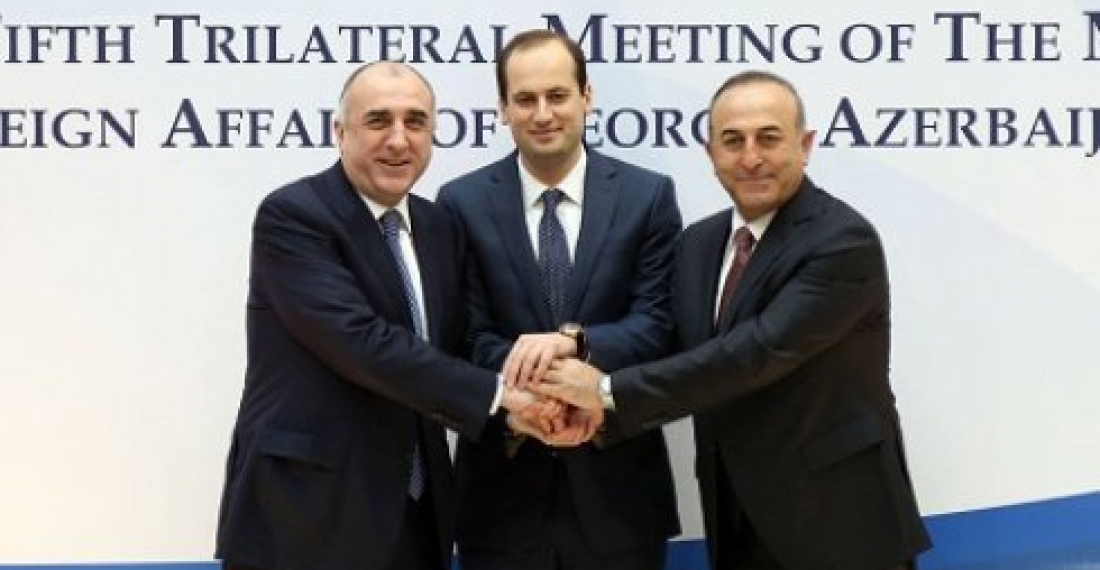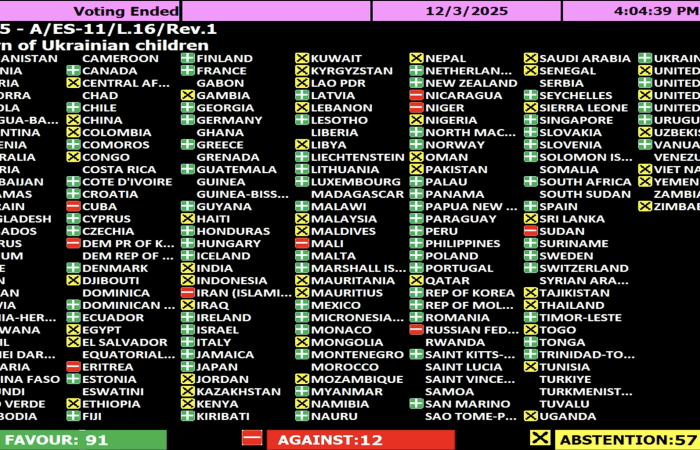A short war, an exemplary election, and a plethora of regional initiatives, are some of the features that characterise the South Caucasus in 2016. In the first of three articles assessing recent events and likely future scenarios, regional analyst Dr Dennis Sammut looks back at how the region fared over the last year.
2016 will be remembered as a year of extraordinary political turmoil - heralding uncertainty in the international system not seen for decades. For Armenia, Azerbaijan and Georgia, celebrating in 2016 the 25th anniversary of their independence, this was an eventful year full of risks and challenges, but from which they emerged amazingly resilient. The three "core" Caucasus countries may however face bigger tests in 2017 due to the convergence of domestic problems and external dangers.
Domestic politics remain unpredictable
The incumbent leaders in all the three countries survived 2016 intact despite challenges that came in all forms. In Georgia, the Georgian Dream party led by prime minister Giorgi Kvirikashvili won a landslide victory in well conducted parliamentary elections hailed as exemplary and a turning point in the country's democratic transformation. Attempts by former President Mikheil Saakashvili to repeat the scenario of 2003 failed to gather traction even within his own party.
In Armenia, in July, a group of armed men seized a police facility in the Erebuni district of the capital Yerevan, hoping to trigger regime change. They failed, but outpour of public sympathy for the rebels left the government of president Serzh Sargsyan considerably shaken. The appointment of an "outsider", Karen Karapetyan, as Prime Minister is meant to send a signal of big changes ahead, whilst securing the status quo.
In Azerbaijan, the ruling elites agonised throughout the year between the risks of implementing reforms, and the risks of not implementing reforms, and there is no sign yet as to which side has won the argument.
All three countries are in the process of enacting or implementing constitutional changes. Armenia adopted constitutional changes in a referendum in December 2015, which envisage the country becoming a parliamentary republic once the term of the present President expires in April 2018. In Azerbaijan constitutional changes were hurriedly put to a referendum in September. They envisage the creation of the position of first vice president, and various vice presidents. So far these positions remain vacant. In Georgia, the government now has enough seats in parliament to enact constitutional changes without needing the support of other parties. The newly elected parliament has set up a Constitutional Commission which has a year to report back. There is intense speculation as to what changes the government wants to push through, but the government dismisses suggestions that democracy will be put at risk, and say they will only adopt the changes after consulting with the "Venice Commission".
Economic challenges have tested the three government, and there are plenty more ahead
In many ways the political debate within the three countries has been overshadowed by the economic situation, and the approach of the three governments to prevent economic crisis and stimulate economic growth. This was seen most dramatically in Azerbaijan where the sudden and sharp decrease in the price of oil led to serious budgetary problems, and a sharp decline in the value of the national currency, the manat. Over the previous decade Azerbaijan had developed a rentier economy, with the state buying the support of the citizens through generous handouts. This is now no longer easily affordable, and together with the pressure on the currency, present the government with a structural economic challenge.
In Georgia, the national currency has also been under pressure since the October elections. The government has a reasonable economic plan for the future, but in the short term it will need to deal with public discontent, which may spread quickly.
In Armenia the economy is largely stagnated. Membership of the Eurasia Economic Union has not yet yielded substantial benefits. The new prime minister has been entrusted to push through reforms, which will necessarily ruffle the feathers of many close to power with vested interests. He will become the scapegoat if his plans fail to yield tangible results.
Trade corridors, energy pipelines and regional formats
Partly in response to these economic challenges, Armenia, Azerbaijan and Georgia are currently all very actively engaged in placing themselves as strategic components of elaborate trade and energy routes and regional collaborative processes. These processes go against the trend of fragmentation that had characterised the region since 1991. Given the complicated geo-political situation this is no mean task, and in 2016 we saw some amazingly creative diplomacy as countries grouped together and new formats for co-operation emerged. Not all are sustainable, but some have huge potential. Turkey, Iran and Russia are actively engaged in these processes, and so are other countries further afield.
Azerbaijan, Georgia and Turkey form an important grouping which started off with the construction of the BTC pipeline in the 1990s but has now developed in many other fields, including rail transportation and defence. The corridor passing through the three countries connects Europe with Asia and has the potential to become as strategic as the Straits of Gibraltar or the Straits of Hormuz. Georgia is trying to maximise on its role, declaring itself as a regional hub, whilst Azerbaijan has launched an ambitious plan for the development of the Port of Baku, with an eye to making it a springboard for the country's industrial development.
In August, the first meeting at the level of president between Russia, Azerbaijan and Iran was held in Baku and ambitious plans were announced for developing a north-south route. Other configurations of this format sometimes also include Turkey.
Landlocked Armenia struggles to compete, but is finding its niche too. Iran's president Hassan Rouhani, on a recent visit to Yerevan, called Armenia Iran's corridor to the west, and the two countries agreed during a recent visit of president Rouhani to Yerevan to develop a transit and transport corridor from the Black Sea to the Persian Gulf - although it was not explained how Georgia or Turkey were going to be involved in order to make this possible..
Georgia has played a positive role in these processes. It has developed skilfully under prime Minister Kvirikashvili, its relations with both Armenia and Azerbaijan, running them in tandem and in a way that both sides will not take offence. This opens the way for more solid regional co-operation between the three countries when the time is right. However one should also not underestimate the difficulty of sustaining this policy in such difficult regional political conditions.
Karabakh remains the single most important potential game-changer
Armenia and Azerbaijan fought a short "war" in April. For outsiders it seemed more like a more serious than usual breach of the cease fire between the two countries in the Karabakh conflict zone, but in the region both sides characterise it as a war because of the intensity of the fighting, the weaponry used, and the implications of the outcome. There were several hundred casualties on both sides, and the Azerbaijanis regained some slivers of land they had lost in the fighting in the 1990s. The Russians were able to contain the situation, and brokered a renewed cease fire with a few days, but their more ambitious plans of moving forward the negotiations for a settlement of the conflict which took off with much fanfare in June, were all but dead and buried by July. Mr Putin it seems, has decided he does not want to risk upsetting the precarious political balance within Armenia and Azerbaijan, at least not yet.
The fighting in April was just a taste of what can happen if either of the sides in the Karabakh conflict decides to pursue a military option. 2016 has shown that Karabakh remains the biggest single risk in the region, and a potential game-changer for both domestic considerations and regional arrangements.
External factors were important in 2016, and will be increasingly so in 2017
External factors were important for the region in 2016. Certainly the three countries followed closely issues related to Brexit, and its impact on the EU, the election of Trump in the United States, and events in Syria. But it was events closer to home that were more immediately significant, including the coup attempt in Turkey, and the subsequent purge of the Turkish elite, Iran's emergence from years of economic sanctions, and Turkey's spat with Russia over the downed airplane in Syria, and the subsequent reconciliation of the two regional giants. Managing Putin's Russia remains a priority for the three countries, even if they approach it differently.
Overall the region has survived 2016 better than some expected. As Armenia, Azerbaijan and Georgia celebrated the 25th anniversary of their independence that followed the demise of the USSR there was a sense that a chapter in their history has been closed. The birth pangs of statehood, the euphoria of the trappings of state, and the initial challenges of the early years - of which there were many, are passed. The three countries are suscpetable to crises, but have become adept at dealing with them. Their existance is not in question, and their institutions are increasingly deep rooted. But the level of political culture and maturity is patchy. 2017 is likely to throw at them serious challenges emanating from a convergence of simmering domestic problems and further turbulance in the international system that may effect the region, willy-nilly.
Dr Dennis Sammut is a regional analyst, and Director of LINKS (Dialogue, Analysis and Research). In the first of three articles assessing recent events and likely future scenarios he looks back at how the region fared in 2016. The second part of this article will be published on 29 December 2016.
photo: The Foreign Ministers of Azerbaijan, Georgia and Turkey at their meeting in Tbilisi in February 2016.The corridor passing through the three countries connects Europe with Asia and has the potential to become as strategic as the Straits of Gibraltar or the Straits of Hormuz. (picture courtesy of agenda.ge






